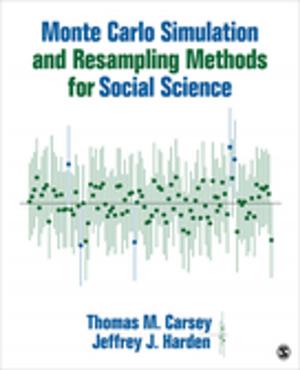Correctional Mental Health Handbook
Nonfiction, Social & Cultural Studies, Social Science, Crimes & Criminals, Penology, Criminology| Author: | ISBN: | 9781506319834 | |
| Publisher: | SAGE Publications | Publication: | December 2, 2002 |
| Imprint: | SAGE Publications, Inc | Language: | English |
| Author: | |
| ISBN: | 9781506319834 |
| Publisher: | SAGE Publications |
| Publication: | December 2, 2002 |
| Imprint: | SAGE Publications, Inc |
| Language: | English |
The Correctional Mental Health Handbook is the first book to offer a comprehensive overview of the services provided by correctional mental health professionals for the various populations found in correctional programs and facilities. Edited by Thomas J. Fagan and Robert K. Ax, experts with over 40 years of correctional mental health experience, this unique handbook is divided into three sections. The first section provides a flexible model for organizing mental health services based on staffing levels, facility mission, and local need. The second section considers typical offender problems in many correctional systems and how they are customarily managed. The third section presents various clinical and consultative activities offered by mental health professionals within correctional settings.
While the main audience will be correctional mental health professionals and academics involved with training correctional mental health professionals, the Correctional Mental Health Handbook is also an ideal primer for graduate students studying corrections in criminal justice programs. For the student preparing to enter the correctional mental health profession, this indispensable text explains the general characteristics and treatment needs of specific inmate populations including: substance dependent offenders, female offenders, sexual predators, and juvenile offenders.
The Correctional Mental Health Handbook is the first book to offer a comprehensive overview of the services provided by correctional mental health professionals for the various populations found in correctional programs and facilities. Edited by Thomas J. Fagan and Robert K. Ax, experts with over 40 years of correctional mental health experience, this unique handbook is divided into three sections. The first section provides a flexible model for organizing mental health services based on staffing levels, facility mission, and local need. The second section considers typical offender problems in many correctional systems and how they are customarily managed. The third section presents various clinical and consultative activities offered by mental health professionals within correctional settings.
While the main audience will be correctional mental health professionals and academics involved with training correctional mental health professionals, the Correctional Mental Health Handbook is also an ideal primer for graduate students studying corrections in criminal justice programs. For the student preparing to enter the correctional mental health profession, this indispensable text explains the general characteristics and treatment needs of specific inmate populations including: substance dependent offenders, female offenders, sexual predators, and juvenile offenders.















